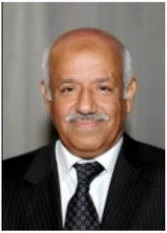By Tamim Elyan
CAIRO: A group of Egyptian political parties refused Monday the People’s Assembly and Shoura Council elections draft law proposed by Cabinet and demanded a dialogue with officials as well as the army council to discuss the draft they had presented earlier.
The group, which calls itself the Democratic Alliance, includes 26 parties which expressed “grave concern” in a statement they issued after a meeting on Sunday to discuss the draft law slated for Cabinet approval on Wednesday.
“The proposed law includes both the individual candidates system and proportional representation party lists system which constitutes a serious threat for the democratic process as it opens the door for the influence of money, tribalism and the return of the remnants of the former regime to parliament, all of which were the reasons the revolution took place,” said the statement.
According to the Cabinet’s proposed law, 50 percent of parliament seats will be elected based on a closed lists system while the rest will be contested by individual candidates. Electoral constituencies will be re-planned and the minimum age for candidates will be reduced to 25 instead of 30 to allow a greater chance for youth participation.
The alliance said that they are committed to the draft law they had proposed to the Supreme Council of the Armed Forces (SCAF) last week which solely adopts the closed proportional lists system for parties and independent candidates.
Leaders in the alliance also demanded an emergency meeting with SCAF and Cabinet before the law is issued.
“The SCAF welcomed the draft law and said it will study it,” said Mohamed Al-Beltagy, head of the Freedom and Justice’s Party (FJP) Cairo chapter.
Members of the alliance comprise parties from the left and far right, bringing together proclaimed liberals and Islamists. It includes Al-Wafd, Nasserist, Al-Ghad, Al-Karama, Al-Tagammu, Labor, Freedom and Justice, Al-Geel, Al-Ahrar and the Egyptian Arab Socialist parties, as well as, Al-Fadila and Al-Tawheed Al-Araby Salafi parties.
Many of these parties are yet to be recognized officially.
The meeting also discussed constitutional principles that member parties agreed should govern the next constitution.
“We want to build a wide national alliance that creates general consensus over the elections law and constitutional principles,” said Al-Sayed Al-Badawy, chairman of Al-Wafd Party.
“We are conveying our demands and we expect the SCAF to respond,” he added.
The alliance, called for by Al-Wafd and the Muslim Brotherhood’s FJP, held its first meeting earlier in June with the participation of 13 parties and agreed to coordinate efforts to draft the elections law and to form a unified roster in the coming PA elections slated for September.
At their second meeting on June 21, they launched what they called a “bill of democratic reconciliation.”
Mohamed Morsi, chairman of the FJP, said that there are still ongoing talks over contesting PA seats through a unified roster.
“The issue is still under discussion but we have to agree first on the elections law,” he said.
In a meeting last week, the alliance parties said that they are building consensus on mechanisms for forming a coalition in the elections.
The Democratic Front, the Justice and the Egyptian Social Democratic parties quit the alliance.
“Osama Al-Ghazaly Harb, head of the Democratic Front, said that this alliance is the only way to pass this transitional period but the majority in his party are against it while the Justice Party only suspended its participation and will return soon,” Al-Badawy said.
Ayman Nour, head of Al-Ghad, said that the alliance includes many youth parties and the door is open for all political powers to join.
They didn’t announce a collective stance vis-a-vis planned protests next Friday July 8, dubbed “the second revolution of anger” to demand swift trials for ex-regime figures and drafting the constitution ahead of the elections. The alliance said that each party will decide on its own.
“We support anything that pushes the revolution forward but we won’t participate at any demonstrations that adopt demands that are a subject of debate between political powers like demands to draft the constitution first.”
The alliance is set to have another meeting on Wednesday to further discuss the PA law.

